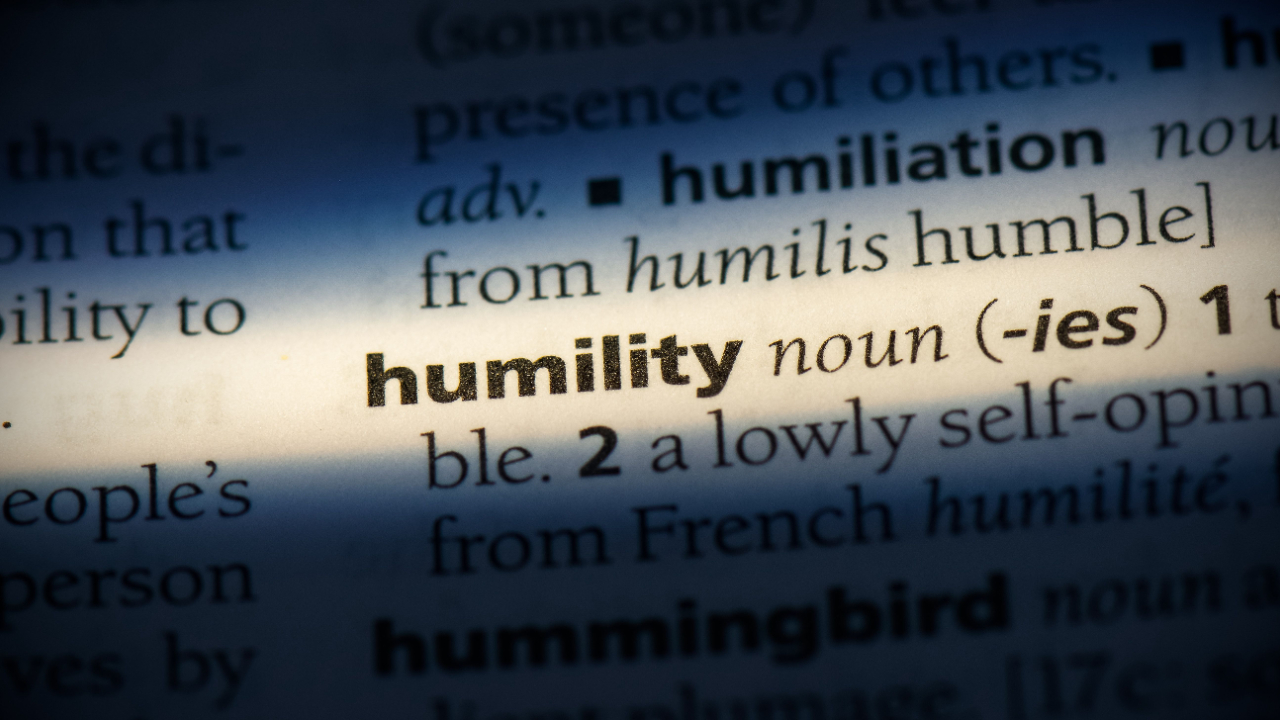Part 3: The Lie I Called Humility

For most of my life, humility looked like making myself small, putting everyone else’s needs before your own, never needing credit, never asking for help, and certainly never drawing attention to yourself.
It was what I thought it meant to live humbly.
But somewhere along the way, that definition started to unravel, especially when helping others didn’t feel holy anymore. It felt heavy. Lonely. Confusing. And it was happening in my marriage, at work, and even in ministry. More and more, I was walking away feeling like.......
“It wasn’t enough. I wasn’t enough.”
And still, I’d call that humility.
The first time I read the C.S. Lewis quote, “Humility is not thinking less of yourself. It is thinking of yourself less,” I stopped to read it again, and again. Slowly.
“Not thinking less of yourself…”
Wait, so humility isn’t putting yourself down or denying your worth?
“…thinking of yourself less.”
It’s not about shrinking. It’s about shifting your focus.
That was a breakthrough for me. Because what I had been living wasn’t humility, it was insecurity dressed up in good intentions.
I thought I was being Christlike. But the truth? I was basing my value on whether the people I helped saw me. Whether they were grateful. Whether they needed me. If they did, I felt purposeful. If they didn’t, I felt pointless. And somewhere along the way, I had confused that rollercoaster for righteousness.
But God wasn’t asking me to prove my value. He had already declared it.
The lie I had called humility was actually me trying to earn what God had already given.
So, I started digging into Scripture, not to find more reasons to sacrifice, but to find the truth about who I was. One verse that always anchored me is in Psalm 139,
“I praise You, for I am fearfully and wonderfully made.”
That wasn’t just poetic, it was personal. God made me. Fearfully. Wonderfully. Intentionally. And He didn’t make me to disappear. He made me to reflect Him. Which means my value isn’t tied to how useful I am to others, it’s rooted in how loved I am by Him.
That was a hard shift for me. Because when you’ve spent years building your identity around being helpful, it’s hard to realize that your deepest need isn’t to help, it’s to be held by the truth of who you are in Christ.
That truth doesn’t eliminate conflict or erase disappointment. It helps you accept it and be strong enough to face it.
Because here’s the thing: even when you know your worth, relationships are still messy. People still hurt you. Expectations still clash. There are still moments when you give everything you have, and it feels like it disappears into a void.
But what changes is this:
You stop doing it to be seen. You start doing it because you see yourself, others, and God more clearly.
That’s real humility. Not disappearing but showing up in strength and surrender. Not seeking applause but serving out of security in who you are and whose you are.
There’s such an enormous difference between saying “I don’t matter” and saying, “I don’t need to make this about me.”
One is a lie that diminishes.
The other is a choice that liberates.
I’ve started learning how to let go of the need to be noticed and instead embrace the truth that I am already known, by a God who created me, sees me, and loves me even when no one else does.
That’s the kind of humility I want to have.
Not the kind that makes me invisible.
The kind that makes me free.
I’m a Maxwell Leadership Certified Coach, and I’ve taken the DISC personality assessment. And, if you know DISC, you know there are four primary behavioral styles: Dominance, Influence, Steadiness, and Conscientiousness. I'm sure it's no surprise that my dominant trait is an S, which means in summary, I am a helper, a supporter.
Supporters love people. We value harmony. We thrive when we feel helpful, loyal, and steady. We're the ones you can count on to follow through, pitch in, and carry the weight when others can’t.
But here's the hard truth I’ve had to learn about being a Supporter: sometimes, we can confuse being needed with being worthy.
And I know I’m not the only one. According to the research, 80% of people identify at least in part as an S. That means 8 out of 10 of us are wired to help, support, and serve, and also wired to deeply feel it when we don’t feel seen.
That’s why this story matters.
Because if you've ever walked into a room and felt invisible after giving your all...
If you've ever poured out for someone and heard silence instead of thank you...
If you've ever wrapped yourself in a false humility that was just fear and unworthiness...
Then you’re not alone.
And it’s time to rewrite that story.
Reflection Prompt:
Where have you mistaken insecurity for humility in your own life? What would change if you truly believed you were fearfully and wonderfully made?